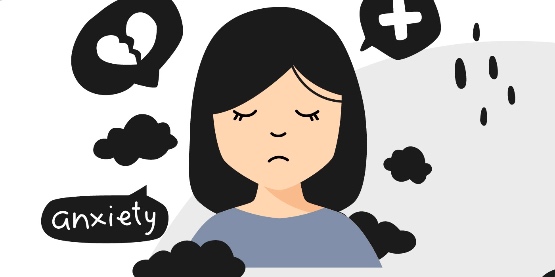
In a world that seems to be moving at an ever-increasing pace, anxiety has become a common thread that connects millions of individuals worldwide. For those who experience it, anxiety is not just a fleeting feeling; it’s an all-encompassing state that affects thoughts, emotions, and physical well-being.
- Understanding Anxiety: Anxiety is more than just feeling nervous before an important event; it’s a complex and multifaceted mental health condition. It can manifest as generalized anxiety disorder (GAD), social anxiety, panic disorder, or other forms. Understanding the root causes and triggers of anxiety is crucial for gaining insight into this condition. Whether it’s genetics, environmental factors, or life experiences, everyone’s anxiety journey is unique.
- The Weight of Anxiety: Living with anxiety can feel like carrying an invisible burden. People with anxiety might face challenges with everyday activities that others find effortless. Simple tasks like making a phone call, attending social gatherings, or even leaving the house can become daunting endeavors. Sharing personal experiences can help others empathize and destigmatize anxiety as a legitimate struggle.
- Seeking Support: While anxiety can be isolating, it’s essential to remember that no one needs to face it alone. Building a support network can significantly impact the journey of managing anxiety. Friends, family, or support groups can provide empathy, understanding, and a sense of belonging. Professional help, such as therapy or counseling, can also offer valuable coping strategies and insights.
- Coping Mechanisms: Managing anxiety is an ongoing process, and it requires developing healthy coping mechanisms. From mindfulness practices and deep breathing exercises to journaling and physical activities like yoga or running, various tools can help individuals regain a sense of control during anxious moments.
- Embracing Vulnerability: Living with anxiety often involves vulnerability and openness about one’s struggles. Embracing vulnerability allows for more authentic connections with others and paves the way for a supportive community. Sharing personal experiences in a safe and respectful space can empower not just the individual but also those around them.
- Redefining Success: Anxiety can sometimes make it difficult to achieve conventional definitions of success. However, it is essential to recognize that everyone’s journey is unique, and accomplishments come in various forms. Embracing small victories, self-compassion, and focusing on personal growth can shift the perspective on what success truly means.
- Breaking the Stigma: Despite the growing awareness around mental health, there is still a stigma attached to anxiety and other mental health conditions. By sharing experiences and speaking openly, individuals can contribute to breaking the stigma and creating a more understanding and compassionate society.
